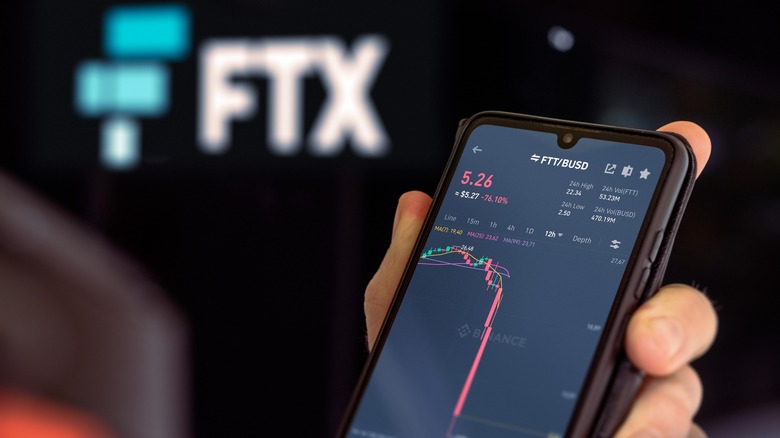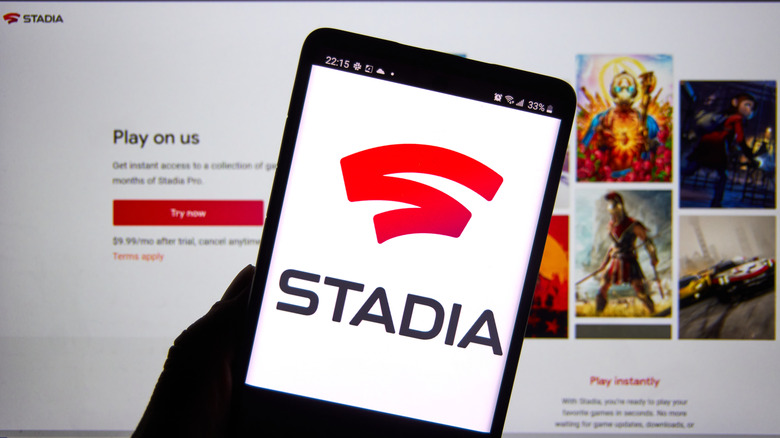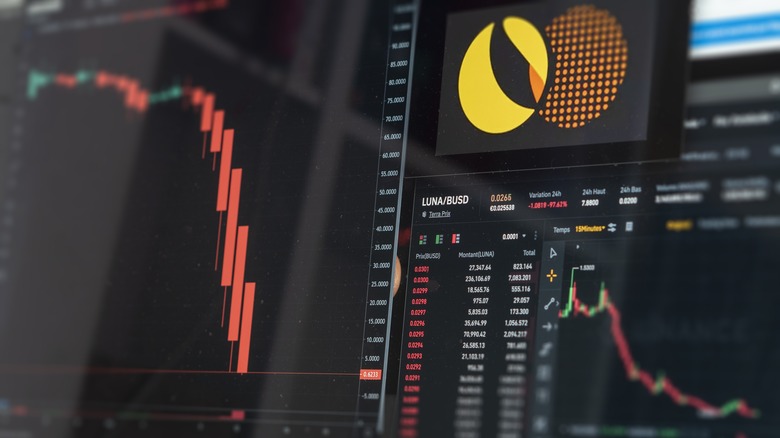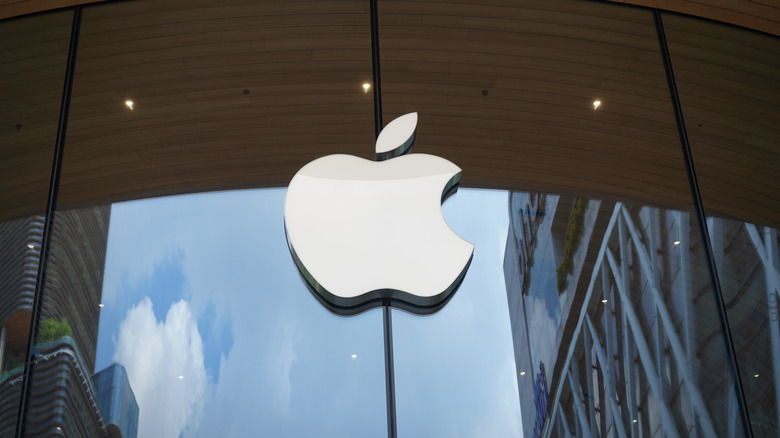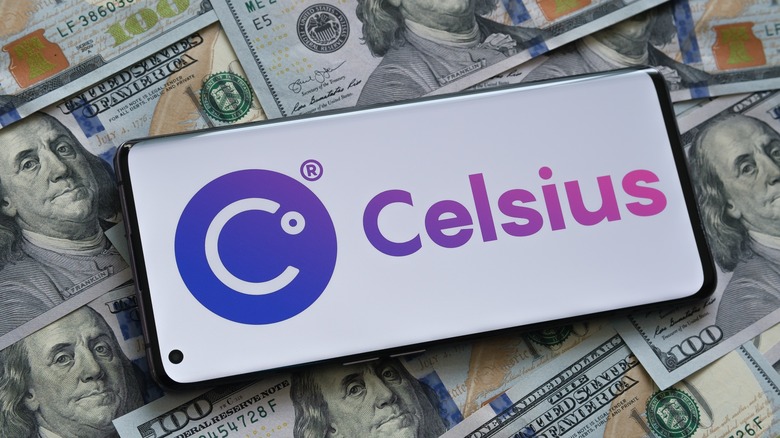The Biggest Tech Failures Of 2022
The tech industry was riding a historic high coming into 2022, with post-pandemic optimism driving stock prices to record heights and the cryptocurrency space experiencing its biggest-ever influx of new investors amid a surge of interest from around the world. It seemed like it was easier than ever for investors to make life-changing returns in a matter of months by simply picking the right new NFT project or coin IPO. Then, reality kicked back in and things started looking a little less rosy.
After record government spending to prop up the U.S. economy during the worst of the Covid-19 pandemic, inflation began to bite, and the Fed hiked up interest rates in response (via CNBC). With that, access to easy credit was gone for cash-hungry companies, just as consumers were looking to rein in their spending and stock prices were beginning to correct to more logical levels. This, inevitably, led to staggering losses for some of tech's biggest unicorns that, just a year or two prior, were considered almost untouchable.
Of course, not every big tech failure this year has been caused by external economic factors. The recent collapse of some of cryptocurrency's biggest players has had a knock-on effect in the sector, as many exchanges and funds turned out to be more closely connected to one another than consumers thought. As the year draws to a close, here's a quick roundup of some of the biggest flops and failures the industry's seen throughout 2022.
FTX
One of the biggest tech news stories of recent months has been the sudden collapse of crypto exchange FTX, and the subsequent arrest of its former CEO, Sam Bankman-Fried. Just a few months ago, SBF was the darling of the crypto industry, being praised as a selfless philanthropist whose generous donations set him apart from his other billionaire peers. Then, a bombshell report from CoinDesk in November revealed that Alameda Research, Bankman-Fried's trading firm, had most of its assets held in FTT, FTX's own token. Rumors began to swirl that Alameda was being essentially propped up by FTX's reserves to the tune of billions of dollars, triggering panic among investors, who rushed to get their coins out of the FTX exchange.
The resulting "liquidity crisis" led SBF to declare his exchange bankrupt a few days later, entering Chapter 11 bankruptcy and with an estimated one million creditors owed money. At the time of writing, the bankruptcy procedure is still ongoing, but at the moment it seems highly unlikely that retail investors will get their tokens back. To add to Bankman-Fried's woes, there have been calls for him to appear in front of Congress to explain what happened, and several lawsuits have been filed against him and the FTX platform. One lawsuit, in particular, goes even further and accuses a host of famous faces who previously endorsed FTX of breaking Florida's investment laws by touting illegal securities. At the time of writing, that case is still ongoing.
Google Stadia
Just three years after it was first launched, Google announced that it was shutting down its Stadia cloud game service in September 2022. The reason why was simple: In Google's own words, it never "gained the traction with users that we expected." As good as the streaming technology might have been, Stadia's failure to catch on with a wider audience meant that it simply wasn't sustainable to carry on running it at a loss. The decision to ax the service seemed to be very sudden and caught even game devs by surprise. One developer even said they'd finalized a deal to bring one of their games to the platform just a day before the announcement.
Stadia will survive through the rest of 2022, closing down for good on January 18th, 2023. Google confirmed that players who had bought Stadia hardware would be refunded, alongside anyone who bought games through the platform's official store. While the service itself won't live past the new year, the company claimed plenty of the technology behind Stadia will be reused in other parts of its tech empire, including in its augmented reality developments. As a result, most of the Stadia development staff will be redeployed to other divisions rather than losing their jobs. It's a shame to see an upstart gaming platform shut its doors just a few short years after it launched, but at least it sounds like the project wasn't a total write-off for Google or its employees.
Terra/Luna
Just as the crypto markets were beginning to slide in early 2022, the fall of the Terra ecosystem and its associated token Luna sent shockwaves through the industry. Its fall was near-instant, with the Luna reaching all-time highs in April, and then collapsing to virtually zero just a month later (via CoinDesk). Terra was supposed to be a stablecoin that was pegged to a $1 value, but rather than using fiat backing, it relied on an algorithmic pairing with Luna to keep it from depegging.
After some initial signs of capital flight at the start of May, Terra/Luna founder Do Kwon told investors not to worry and deployed reserves of Bitcoin in an attempt to defend the peg. It didn't work, and after reports emerged that Kwon was the pseudonymous figure behind a separate failed algorithmic stablecoin, Luna's value crashed 96% in a single day. There was nothing Kwon or anyone else could do to rescue the ecosystem from that point, although the CEO did eventually launch a new blockchain called "Terra 2.0" a few weeks later. South Korean authorities investigating the collapse of the original Terra blockchain have issued a warrant for Kwon's arrest, but at the time of writing, he remains a fugitive. Authorities now believe he is hiding in Serbia, and are reportedly working with Serbian law enforcement to locate him (via BBC). It's estimated that investors lost a total of $42 billion due to the collapse.
Meta
Facebook founder Mark Zuckerberg has remained steadfast in his vision of developing the metaverse, even renaming his company "Meta" to reflect this shift of focus. However, investors and the public at large have remained considerably less enthusiastic about the project, which aims to develop a virtual environment where users can work, meet, and take part in a variety of activities and games. Since unveiling his vision, the stock price of Zuckerberg's company has taken a beating, and at the time of writing, is down 65% year-to-date.
Meta's flagship Horizon Worlds platform is reportedly struggling to keep users interested, with the company having to lower its user targets to reflect a lower-than-expected retention rate, according to leaked documents. As of October 2022, Horizon Worlds reportedly had 200,000 monthly users, a tiny fraction of the biggest "metaverse" platform. By comparison, the child-friendly "Roblox" boasts over 200 million monthly users (via PocketGamer). Meta has denied rumors that its founder and CEO is quitting in 2023 amid increasing investor pressure, but it appears Zuckerberg is well aware of the criticism of his vision. After laying off around 13% of its workforce at the start of December, forums and job boards were flooded with critical reviews of the CEO, with one ex-employee saying his metaverse vision will "single-handedly kill" the company.
Amazon Alexa
Amazon's Alexa voice assistant has found its way into millions of homes thanks to the tech giant's Echo line of devices, but a report from Business Insider claimed that it wasn't quite the success that many might think it is. In fact, the Alexa project will allegedly lose Amazon $10 billion by the end of 2022, and it's never been profitable at all. The losses stem from Alexa's failure to convert users into customers for Amazon's main business, as the initial goal of the device was to drive sales through the use of the voice assistant. Echo devices were therefore sold at cost price, with the intention of encouraging maximum adoption which would in turn be converted into profit when customers used the assistant to order goods.
The trouble is that most Alexa users simply don't use the device for much else other than listening to music or asking it to do simple tasks, like become a hands-free timer or read out the weather forecast. Amazon only takes a small percentage of the royalties for music streamed through its service, and basic commands like reading the weather don't make the company any money at all. Alexa was reportedly Jeff Bezos' pet project, but as its fortunes have waned, the founder's enthusiasm for the assistant has reportedly tailed off. A wave of layoffs was announced in November for developers on the Alexa project, and there are rumors of more cuts to come in the near future.
3AC and Voyager
At the start of July 2022, crypto hedge fund Three Arrows Capital (3AC) filed for bankruptcy after a series of bad investments led to huge losses for the company. The fund defaulted on a large loan from brokerage platform Voyager, which in turn, led to Voyager declaring bankruptcy just a week later (via The Verge). In a press release announcing the bankruptcy, Voyager declared that it had $1.3 billion of crypto assets held on the platform, but its exposure to 3AC totaled more than $650 million.
Under the proposed restructuring plan, customers who had deposited funds into the platform would receive "a combination of the crypto in their account(s), proceeds from the 3AC recovery, common shares in the newly reorganized Company, and Voyager tokens." An auction for the assets of the bankrupt brokerage was completed in September with FTX being the highest bidder. However, after FTX's bankruptcy filing in November, Voyager's assets are now up for sale again, with Binance among the leading bidders (via CoinDesk). As a result of this ongoing auction process, users of the Voyager platform have been left in the lurch for months, unable to access or recover their funds.
NFTs
The start of 2022 saw record levels of interest in NFTs (Non-Fungible Tokens), as investors raced to find the next big collection and blue-chip NFTs like CryptoPunks and Bored Ape Yacht Club surged in value. Fast forward to the second half of the year, however, and Bloomberg reported that trading volume had collapsed by 97%, from a high of $17 billion in January to just $466 million in September. More recent data from November shows the decline continuing, with an estimated $394 million in sales across the top five platforms. High-profile collections have also plummeted in value from their all-time highs, with the floor price for BAYC currently sitting at around $84,000, down from a high of around $420,000 in May 2022, according to data from CoinGecko.
Extreme volatility in the NFT space and cryptocurrency in general is nothing new, but the falling prices of the most popular collections combined with an overall slump in trading volumes should worry even the most optimistic investors. Much of the NFT boom earlier in the year was driven by first-time buyers, and as the saying goes, once bitten, twice shy. Those first-timers, many of whom lost significant amounts of money in the crashes that have ravaged the industry over the past year, are unlikely to want to jump back into the NFT space, even if values do eventually begin to trend upward again.
Apple's self-driving car
Apple is one of the few tech titans dodging the industry slowdown, posting consistently strong profits even as rivals are seeing their margins decrease. It's not all going well for the Cupertino manufacturer though, as Bloomberg recently reported that Apple's long-awaited self-driving car may not actually be self-driving at all. Instead, insiders have said that it will have autonomous capabilities on the highway only, and still require a human to be ready to intervene at all times. In other words, it seems like Apple's system won't be able to do anything that rival systems from the likes of Tesla and GM can't already do.
As well as scaling back the plans for its self-driving car, Apple has also pushed back its expected release date, with Bloomberg reporting that it won't be ready until 2026 at the earliest. The company is reportedly targeting an MSRP under $100,000, which would pit the car directly against more established rivals from Tesla, BMW, and co. At present, it's unclear exactly what unique features the Apple car will bring to the table. It will need to bring something unique, as even Apple's considerable brand power likely won't be enough to drag many consumers away from other manufacturers on its own. Considering the company has been working on the project for at least a decade now, it doesn't seem to have a lot to show for it.
Celsius
Another crypto platform that promised very high returns with seemingly no clear way to make good on its promises was Celsius, which filed for bankruptcy protection in July (via CNBC). Celsius essentially acted as a bank, lending out money to investors and hedge funds while promising yields of up to 18.63% on customer funds. While new users kept pouring in, the system was sustainable, but it became clear that Celsius was offering higher returns to customers than it could feasibly generate. It was, in effect, a Ponzi scheme, says CNBC, and as soon as the flood of new users began to slow down, the whole system quickly collapsed.
Bankruptcy proceedings for Celsius are ongoing, but it appears that retail investors are unlikely to get their money back. Founder Alex Mashinsky stepped down as CEO in September, as he said his presence had "become an increasing distraction." He claimed in a statement that he remained committed to returning deposits to customers, but given that there was a reported $1.2 billion hole in Celsius' balance sheet when it collapsed, it's unclear how he plans to do that.
Peloton
Peloton's rise seemed unstoppable in the early stages of the Covid-19 pandemic, as cooped-up consumers looked for ways to exercise at home. Sales surged, and so did the company's stock price, but the boom didn't last long. After a disappointing drop in sales in 2021, Peloton's stock plunged 76%, and across 2022, it has shown no signs of stopping its downward trend. According to MSN, the biggest issue is that investors don't trust Peloton's new CEO, Brian McCarthy. His decision to begin selling bikes on Amazon and at Dick's Sporting Goods doesn't seem to have stimulated sales like he had hoped it would, and in the last quarter, revenue dropped a further 23%.
Peloton made a loss of $409 million in that period according to MSN, and with sales showing little sign of rebounding, it's not clear how the company plans to turn a profit in the future. Even CEO McCarthy has reportedly told investors that sales across the holiday season might not be as high as some were hoping for, setting off alarm bells and sending the stock down even further. Peloton was at one point one of the leaders spearheading the home fitness tech revolution, but if it keeps going on its current trajectory, it seems the entire company may soon be consigned to the history books.

